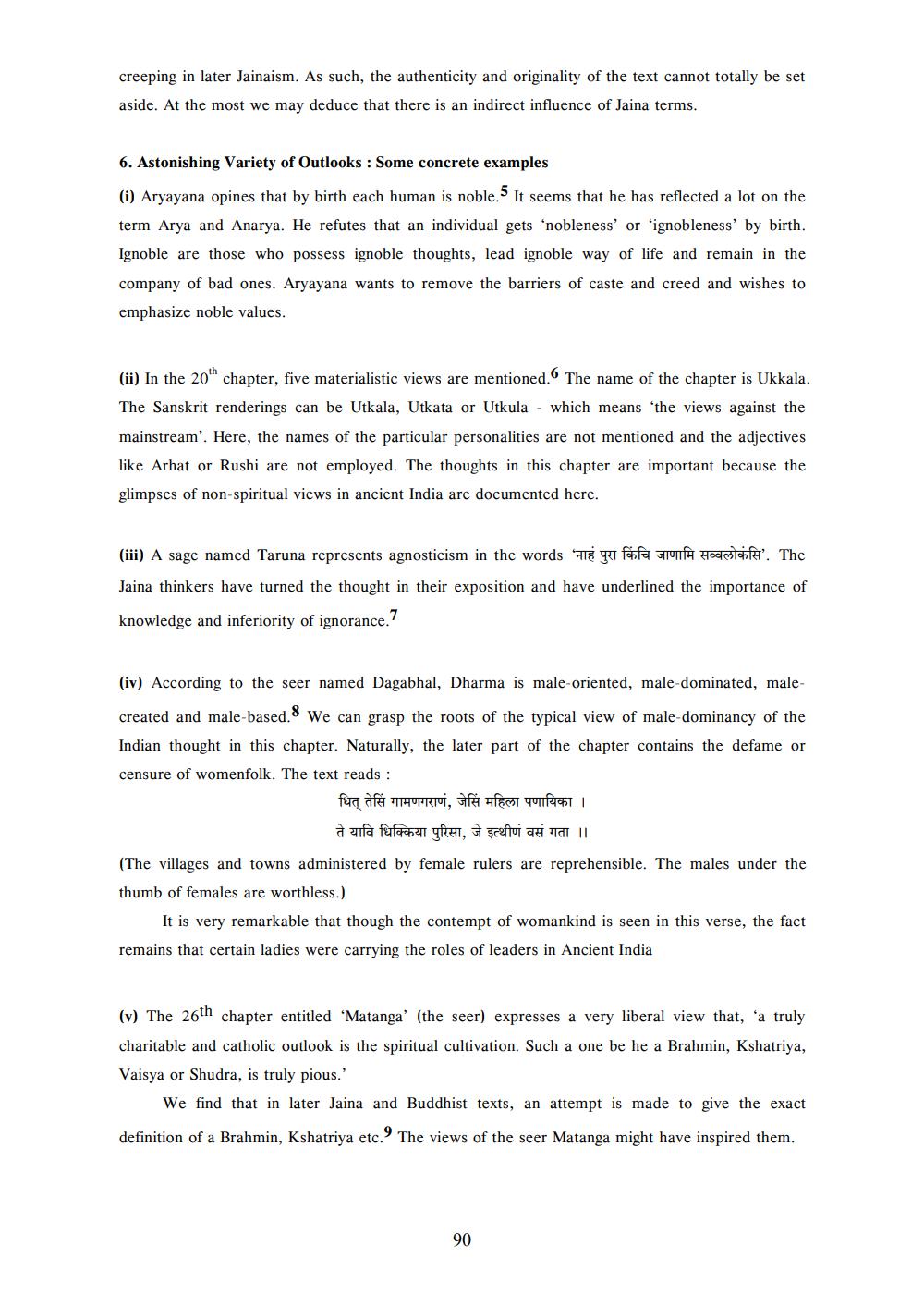________________
creeping in later Jainaism. As such, the authenticity and originality of the text cannot totally be set aside. At the most we may deduce that there is an indirect influence of Jaina terms.
6. Astonishing Variety of Outlooks : Some concrete examples
(i) Aryayana opines that by birth each human is noble. It seems that he has reflected a lot on the term Arya and Anarya. He refutes that an individual gets 'nobleness' or 'ignobleness' by birth. Ignoble are those who possess ignoble thoughts, lead ignoble way of life and remain in the company of bad ones. Aryayana wants to remove the barriers of caste and creed and wishes to emphasize noble values.
(ii) In the 20th chapter, five materialistic views are mentioned. The name of the chapter is Ukkala. The Sanskrit renderings can be Utkala, Utkata or Utkula - which means 'the views against the mainstream'. Here, the names of the particular personalities are not mentioned and the adjectives like Arhat or Rushi are not employed. The thoughts in this chapter are important because the glimpses of non-spiritual views in ancient India are documented here.
(iii) A sage named Taruna represents agnosticism in the words
fhfe unfu Hodoof. The
Jaina thinkers have turned the thought in their exposition and have underlined the importance of
knowledge and inferiority of ignorance.7
(iv) According to the seer named Dagabhal, Dharma is male-oriented, male-dominated, male
created and male-based. We can grasp the roots of the typical view of male-dominancy of the Indian thought in this chapter. Naturally, the later part of the chapter contains the defame or censure of womenfolk. The text reads :
धित् तेसिं गामणगराणं, जेसिं महिला पणायिका ।
ते यावि धिक्किया पुरिसा, जे इत्थीणं वसं गता ।। (The villages and towns administered by female rulers are reprehensible. The males under the thumb of females are worthless.)
It is very remarkable that though the contempt of womankind is seen in this verse, the fact remains that certain ladies were carrying the roles of leaders in Ancient India
(v) The 26th chapter entitled 'Matanga' (the seer) expresses a very liberal view that, 'a truly charitable and catholic outlook is the spiritual cultivation. Such a one be he a Brahmin, Kshatriya, Vaisya or Shudra, is truly pious.'
We find that in later Jaina and Buddhist texts, an attempt is made to give the exact
definition of a Brahmin, Kshatriya etc. The views of the seer Matanga might have inspired them.




